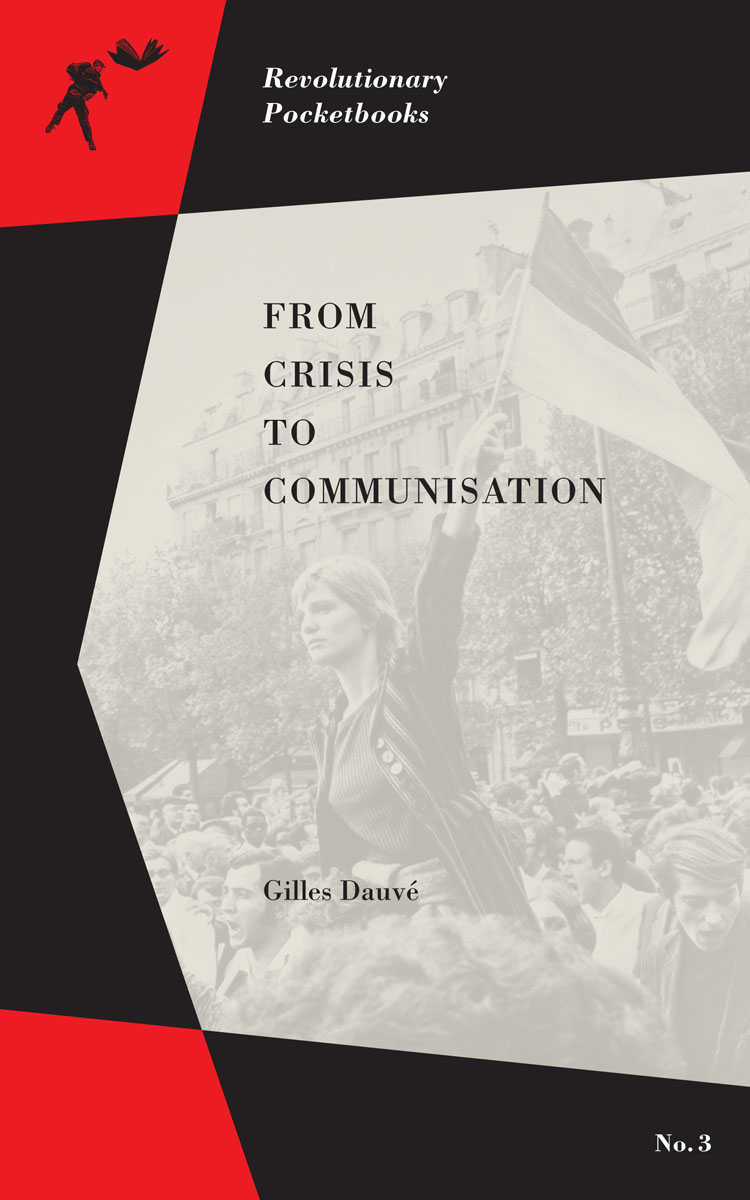

Revolutionary Pocketbooks

Eclipse and Re-emergence of the Communist Movement
Gilles Dauv and Franois Martin
Voices of the Paris Commune
edited by Mitchell Abidor
From Crisis to Communisation
Gilles Dauv
Death to Bourgeois Society: The Propagandists of the Deed
edited by Mitchell Abidor
Maoism and the Chinese Revolution: A Critical Introduction
Elliott Liu
Anarchy and the Sex Question: Essays on Women and Emancipation, 18961926
Emma Goldman edited by Shawn P. Wilbur
For a Libertarian Communism
Daniel Gurin edited by David Berry
The Permanent Guillotine: Writings of the Sans-Culottes
edited by Mitch Abidor
Anarchism, Anarchist Communism, and The State: Three Essays
Peter Kropotkin introduction by Brian Morris
New Fields: Early Reflections on Anarchism
Max Nettlau edited by Shawn P. Wilbur
From Crisis to Communisation
Gilles Dauv
This edition copyright 2019 PM Press
All rights reserved. No part of this book may be transmitted by any means without permission in writing from the publisher.
ISBN: 9781629630991
Library of Congress Control Number: 2015930885
Cover by John Yates/Stealworks
Layout by Jonathan Rowland based on work by briandesign
10 9 8 7 6 5 4 3 2 1
PM Press
PO Box 23912
Oakland, CA 94623
www.pmpress.org
 CONTENTS
CONTENTS COMMUNISATION AND MY DISCONTENT
COMMUNISATION AND MY DISCONTENTFor several years now, the theme of communisation has led to controversies that are very often ill-informed, Bruno Astarian wrote in 2010.1
An understatement. In recent years, communisation has become one of the radical in-words, whose popularity extends far beyond the regrettably called communisers. In a transatlantic game of Chinese whispers, the notion has developed into an elasticity of meaning and is now a blanket term covering a wide range of attitudes and theories.2 The differences among these are both substantial and consequential.3
A truly valid and stimulating approach to revolution is mixed with a deceptive reconstruction of history that divides it into two completely different phases and presents a catastrophe-happy view of the present, akin to a final crisis theory, though nobody expresses it in such plain words.
Many communisation theorists behave as if they had found the solution once and for all and present our time as a period when the proletarian movement has and can only have one goal: communism.
In spite of its extremist outlook, is it all that different from what could be heard in 1970? In the bygone days of workerist Leninist party-building and counterculture experimenting, a lot of radicals also believed their version of revolution meant changing everything: We want the world and we want it now! Forty years later, communisation serves as a convenient reference point, like Marxism (or, for others, anarchism) to which a very heterogeneous set of ideas can be added: it provides people with a supposedly solid and undisputed common ground on which they feel free to combine class, gender, race, alternative art, and perhaps ecology. If capitalism is about to die, everything is permitted.
Here is our basic disagreement with a lot of communisers: They regard communisation as the long-wanted and at-last-found answer to the revolutionary question, and consequently regard themselves as providers of this ultimate answer.
There is no privileged vantage point where the meaning of all history is revealed, and one of the main points this book will make is that the idea of communisation was and remains a product of its time. The communisation concept depends upon a specific period, a specific crisis, and the other major crisis we are now going through has bearing on its evolution.
This is neither a history of ideas nor an impersonal story. We will have to recall where a number of comrades came from and what they did in the late 1960s, what part they played around 1968 and how they understood it, went back to Marx, to the German-Dutch and Italian Lefts, and read the Situationists, how the notion of communisation emerged and what has become of it since.
CHAPTER 1
 LEGACY
LEGACY1: Back to the 1960s70s
Lets start with a hard fact: in the 1960s and 70s, the proletarians did not cross the Rubicon.
Fordism had reached its zenith at the same time as it intensified work and as dissatisfaction about consumer society started to grow. That double cause resulted in the combination of worker unrest and a critique of daily life, which launched a long proletarian wave.
When the movement lost its critical edge, its manifold aspects turned into fragmented piecemeal transformations. The workplace became the scene of a neo-unionism, albeit with little new union creation. Armed violence disconnected itself from social disturbances. Womens action withdrew into feminism. The critique of the party led to the launching of grouplets, and the critique of vanguardism ended in rank-and-filism. Rebellious marginality got integrated into acceptable street culture. The critique of daily life gave birth to alternativism and cyberindividualism. Instead of anti-imperialist and anti-military actions, the 2003 Iraq War coincided with the heyday of consensual pacifism.
This was no novelty: revolutionary failures unleash reaction and recuperation.
The big turn lay elsewhere: no radical grassroots organisation was born out of this worldwide storm, even in countries which were at the peak of the movement, and those organisations that emerged were short-lived, or merged with former organisations, unions usually. The Argentine Cordobazo popular uprising of 1969 did not create large sustainable organisations, and neither did the widespread worker insubordination and street rioting in the mid-1970s in Italy. New bodies or breakaway unions spring up all the time, with little foothold in the working class.
This major change went rather unnoticed at the time and still is.
All previous unrest or insurrectionary periods had resulted in the creation of new forms, whether party, union, or autonomous body. In the West and in Japan, since the demise of the Spanish Workers Party of Marxist Unification (POUM) in 1937, no far-left party with strongholds in the workplace has been founded and has managed to fight on. Nothing comparable to early twentieth-century social democracy, Stalinist parties, or the 1930s CIO. Syriza is just about capable of moderating unrest in Greece: it proves incapable of putting forth a platform alternative to mainstream bourgeois politics.
One of the main reasons for this is the lack of intermediate demands capable of gathering mass support in the working class, as universal suffrage, the eight-hour day, union rights, labour laws, and paid holidays had done before World War II. Whatever the causes, this meant the real end of the worker movement as we had known it. Its later decline, under the combined pressures of unemployment, deindustrialisation and repression, as exemplified by the English miners defeat in 198485, was a dramatic yet secondary matter.
Next page
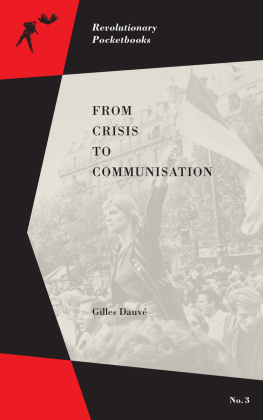

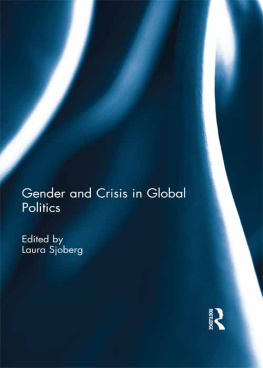

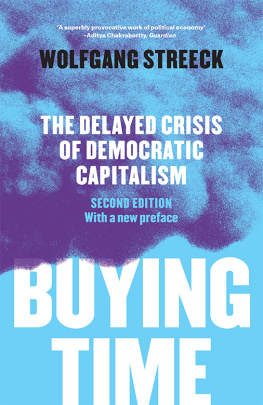

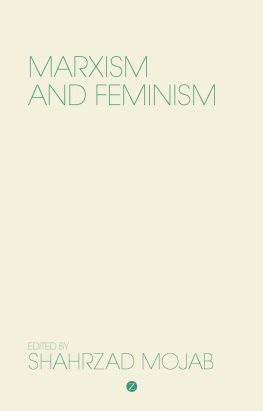
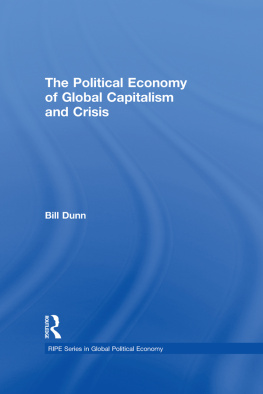
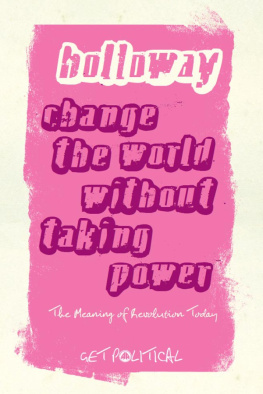
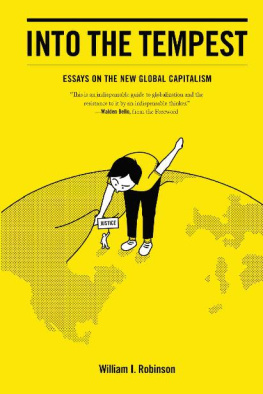
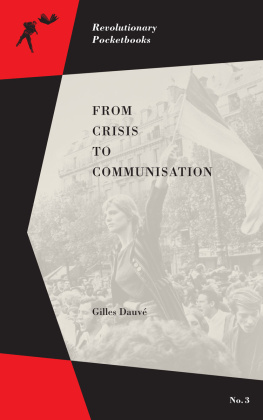
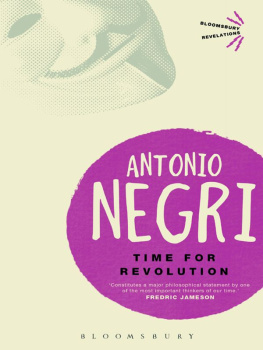



 CONTENTS
CONTENTS